Maxmilian Wechsler discovers how man’s best friends are helping former British policeman Joe Cox to provide security for embassies, construction sites, government agencies and even Manchester United F.C.
| WESTERNERS who launch a business entirely on their own in Pattaya and prove successful are not exactly common, but former British policeman Joe Cox has bucked the trend with his security company that also operates uniquely as a dog breeder and handler. By supplying his canines to government agencies and private companies, Joe’s business is not just ticking over, it’s positively thriving against some fairly formidable competition. Although he also provides people for security work, he says the dogs he owns and trains are mostly responsible for his good fortune – and he’s full of praise for them and their abilities. “You can’t corrupt a dog,” said the 43-year-old owner and Managing Director of Defence International Security Services. “Dogs won’t turn on you, they don’t lie and they don’t take bribes.” |
Joe has 15 dogs here, seven males and eight females, aged from two to eight years. The dogs are kept in a kennel at Huay Yai in Banglamung district near Pattaya.
“Our clientele include embassies in Bangkok. We have done sweeps of the British embassy for explosives with our dogs, as well as the war cemetery in Kanchanaburi where remembrance services are held. We search the area to make sure there are no explosive devices or anything harmful.
“My dogs are also hired by Thai and foreign government agencies and offices as well as local housing developments and condominiums where the construction is not completed and materials could be stolen. The dogs are a better deterrent than a uniformed security guard who might be late for work, fall asleep, or be unable to make a decision to act, which won’t happen with a properly trained dog.”
Dogs are recognized internationally as a highly effective weapon to deter and fight a wide variety of criminal activity, and they can be taught to detect almost anything, even money, explains Joe, who reckons that dogs are underutilized in Thailand.
He said the Royal Thai Police’s explosives team in Bangkok has invited his dogs and handlers to teach them modern methods in training dogs.
Meanwhile, the Bangkok Metropolitan Police Bureau dog (K9) unit of the RTP comes in for some criticism. “They were given many dogs by US law enforcement organizations, but in my opinion, they’re either too old or not trained properly. They were given to the Thai government as a goodwill gesture – and that’s the problem.
“No disrespect intended to K9, but the dogs at the airport haven’t got the drive. They are too old and the handlers don’t work with them properly. When you work with a search dog you have to be emotionally connected and direct the dog with your hands or the way you speak and through body language. The dog handlers at the airport aren’t doing that.
“My dogs are flown in from Europe. Our breeds include Belgium Shepherds (Malinois), Dutch Shepherds, English Springer Spaniels and Labradors. We bring them in from overseas because I don’t believe dogs in Thailand have the drive or the stamina – they don’t have the heart. They’re either over-bred or they have the wrong bloodline. Our dogs can work all day and all night because they have the drive and the stamina.
“The sex of the dog is not an issue. When the females come in heat they aren’t required to work; otherwise they are just as good as the males. What’s important is how much the dog enjoys the work, if he or she has the drive. If the dog likes to find a tennis ball and you throw the ball all day long and the dog keeps looking for the ball and keeps coming back with it, this is the drive you are looking for,” said Joe.
“One dog and one handler train together. It is like a marriage made in heaven because the dog handler has to understand, operate and control the dog and the dog has to have confidence in the handler, so both can work in partnership and interact with one another.
“To obtain and look after the dogs is not cheap and I am financing it all. I pay for the flights, get them through customs to Huay Yai and then take care of the veterinary bills; dogs get injured or sick just like humans. We feed them twice a day and pay for all kinds of other expenses. It is a big investment.
“We transport our dogs in air-conditioned cabs because, as you can imagine, travelling on the motorways in the sun for hours would take a lot out of them and we want them fresh when they arrive at the job.”
“Our clientele include embassies in Bangkok. We have done sweeps of the British embassy for explosives with our dogs, as well as the war cemetery in Kanchanaburi where remembrance services are held. We search the area to make sure there are no explosive devices or anything harmful.
“My dogs are also hired by Thai and foreign government agencies and offices as well as local housing developments and condominiums where the construction is not completed and materials could be stolen. The dogs are a better deterrent than a uniformed security guard who might be late for work, fall asleep, or be unable to make a decision to act, which won’t happen with a properly trained dog.”
Dogs are recognized internationally as a highly effective weapon to deter and fight a wide variety of criminal activity, and they can be taught to detect almost anything, even money, explains Joe, who reckons that dogs are underutilized in Thailand.
He said the Royal Thai Police’s explosives team in Bangkok has invited his dogs and handlers to teach them modern methods in training dogs.
Meanwhile, the Bangkok Metropolitan Police Bureau dog (K9) unit of the RTP comes in for some criticism. “They were given many dogs by US law enforcement organizations, but in my opinion, they’re either too old or not trained properly. They were given to the Thai government as a goodwill gesture – and that’s the problem.
“No disrespect intended to K9, but the dogs at the airport haven’t got the drive. They are too old and the handlers don’t work with them properly. When you work with a search dog you have to be emotionally connected and direct the dog with your hands or the way you speak and through body language. The dog handlers at the airport aren’t doing that.
“My dogs are flown in from Europe. Our breeds include Belgium Shepherds (Malinois), Dutch Shepherds, English Springer Spaniels and Labradors. We bring them in from overseas because I don’t believe dogs in Thailand have the drive or the stamina – they don’t have the heart. They’re either over-bred or they have the wrong bloodline. Our dogs can work all day and all night because they have the drive and the stamina.
“The sex of the dog is not an issue. When the females come in heat they aren’t required to work; otherwise they are just as good as the males. What’s important is how much the dog enjoys the work, if he or she has the drive. If the dog likes to find a tennis ball and you throw the ball all day long and the dog keeps looking for the ball and keeps coming back with it, this is the drive you are looking for,” said Joe.
“One dog and one handler train together. It is like a marriage made in heaven because the dog handler has to understand, operate and control the dog and the dog has to have confidence in the handler, so both can work in partnership and interact with one another.
“To obtain and look after the dogs is not cheap and I am financing it all. I pay for the flights, get them through customs to Huay Yai and then take care of the veterinary bills; dogs get injured or sick just like humans. We feed them twice a day and pay for all kinds of other expenses. It is a big investment.
“We transport our dogs in air-conditioned cabs because, as you can imagine, travelling on the motorways in the sun for hours would take a lot out of them and we want them fresh when they arrive at the job.”
| Coming to Thailand After serving in the British Army, Joe joined the London Metropolitan Police training operational dogs. Almost 20 years later, in 1996, he launched Defence Security Services UK, which continues to this day to provide security services throughout the UK. “In 1998 a great friend of mine, Tom Coglan, an ex-Manchester police officer who is also an expert dog handler, invited me to visit him in Pattaya, where he was living. He introduced me to Thailand and that’s how it all started here,” said Joe. “We were asked to work under another security company in Thailand to supply dogs for the Cobra Gold military exercise. We were doing search work for the hotels where the generals and other high-ranking officers were staying. “Later, we were invited by the RTP in Pattaya to do demonstrations on how the dogs work. We also were engaged in carrying out drug raids with the police. From then on we were accepted and trusted more by the police and by different industries. “I went to back to England but kept returning for vacations. Eventually I sold my house in the UK and relocated here in 2007. I discovered that the security sector was under-performing, and that’s one reason why I decided to form my company. |
“I don’t have partners, but I am lucky that my Thai wife of eight years is very supportive. Without her, I doubt that the company would be as well established as it is now. She has always helped to guide me in this country and if I make a mistake or I am not thinking clearly with regard to the Thai way of doing things she corrects me.
“Originally I came to Thailand just to work with dogs but later clients asked me to start supplying uniformed security officers. This wasn’t my specialty and I found it very hard to adapt and train Thai staff in the proper professional methods accepted here. So I brought all my training materials and records from England and began training Thai staff according to British security standards.
“Later we were asked if we could go into alarms, cameras, and business contingency plans. So in a nutshell, we now offer a combined service and we are more proactive. We advise clients and supply risk assessment analysis as well as security officers and dogs.”
His company also covers less obvious areas of security, such as the aftermath of floods.
“People do not realize the impact something like a flood has on their business. There are no contingency or emergency plans. We can help.”
Joe makes it absolutely clear, though, that he doesn’t act as a private detective, “following a Thai girl to see if she’s seeing someone else while her boyfriend is away,” or chasing people who don’t pay their debts.
The company does, however, have the technical capabilities to protect against commercial sabotage or espionage. “For example, you have some confidential data on your hard drive and one of your staff has transferred it onto a USB memory stick and is possibly giving it to a competitor within your industry.
“Another example: If you dismiss an employee and give them 30 days notice, what damage can they do to you in that time period? Can they hack access to your server? Can they get information on private accounts?
“If a client suspects such activities, we can put a system in place. We do remote monitoring on a company’s computer system through keyboard recognition and see what employees are up to. We can put restrictions on folders and passwords to protect them, so only relevant people can see that information.
“We can put systems in place to block people from copying information onto memory sticks or hard drives. We are also installing security locks with fingerprint recognition or eye scanners for factories and houses.
“Just consider – when the alarm system on your premises goes off, who is going to answer it? The police in Thailand won’t. It is not like in England where you buy the alarm system and you subscribe to a police service. The hope is that the noise will deter the criminal, but what if it doesn’t?
“So we set up a mobile response team with a dog and handler. When the alarm goes off it goes to the mobile vehicle. If the operator doesn’t answer, then it will go to my phone. The alarm keeps ringing until someone answers. This service is unique in Thailand.”
“We supply our services not only in Pattaya but also Chiang Mai and Bangkok, and we plan to spread throughout Thailand. We have also been asked by clients to open up offices in Myanmar, Laos and the Philippines.
“Originally I came to Thailand just to work with dogs but later clients asked me to start supplying uniformed security officers. This wasn’t my specialty and I found it very hard to adapt and train Thai staff in the proper professional methods accepted here. So I brought all my training materials and records from England and began training Thai staff according to British security standards.
“Later we were asked if we could go into alarms, cameras, and business contingency plans. So in a nutshell, we now offer a combined service and we are more proactive. We advise clients and supply risk assessment analysis as well as security officers and dogs.”
His company also covers less obvious areas of security, such as the aftermath of floods.
“People do not realize the impact something like a flood has on their business. There are no contingency or emergency plans. We can help.”
Joe makes it absolutely clear, though, that he doesn’t act as a private detective, “following a Thai girl to see if she’s seeing someone else while her boyfriend is away,” or chasing people who don’t pay their debts.
The company does, however, have the technical capabilities to protect against commercial sabotage or espionage. “For example, you have some confidential data on your hard drive and one of your staff has transferred it onto a USB memory stick and is possibly giving it to a competitor within your industry.
“Another example: If you dismiss an employee and give them 30 days notice, what damage can they do to you in that time period? Can they hack access to your server? Can they get information on private accounts?
“If a client suspects such activities, we can put a system in place. We do remote monitoring on a company’s computer system through keyboard recognition and see what employees are up to. We can put restrictions on folders and passwords to protect them, so only relevant people can see that information.
“We can put systems in place to block people from copying information onto memory sticks or hard drives. We are also installing security locks with fingerprint recognition or eye scanners for factories and houses.
“Just consider – when the alarm system on your premises goes off, who is going to answer it? The police in Thailand won’t. It is not like in England where you buy the alarm system and you subscribe to a police service. The hope is that the noise will deter the criminal, but what if it doesn’t?
“So we set up a mobile response team with a dog and handler. When the alarm goes off it goes to the mobile vehicle. If the operator doesn’t answer, then it will go to my phone. The alarm keeps ringing until someone answers. This service is unique in Thailand.”
“We supply our services not only in Pattaya but also Chiang Mai and Bangkok, and we plan to spread throughout Thailand. We have also been asked by clients to open up offices in Myanmar, Laos and the Philippines.
| Canines at the core Despite his company expanding, Joe’s dogs remain a primary component of the services offered. “They are trained for general patrol work, finding anything from keys, wallets and bags to missing people. If someone breaks into this office and then runs across the field opposite the building and hides, we can put the dog in this room to detect the person’s odor and the dog will pick up the odor and follow the scent to where the person is hiding. “We don’t use our dogs to look for corpses, but we do use them for crowd control, to detect drugs, explosives, firearms and ammunition.” His uniformed security guards are constantly undergoing in-house training. ‘‘They have to learn things like how to fill out report sheets instantly and properly and how to establish a chain of custody for evidence. They have to learn the law, what they can and cannot do. We also teach them how to handcuff somebody. Often you see somebody with the handcuffs in the front, which is wrong. “We teach our staff how to interact with people because this is a very important part of being a security officer. We subject them to random drug and alcohol tests, and we use oral swabs from Australia because they are more reliable. Clients also ask us to carry out such tests on their behalf. Finding the right manpower is a problem for Joe, who says only about 30 percent of applicants pass the training course. As the only security company in Pattaya to have dogs as part of its operation, Joe faces little or no competition. “Our Thai security guards can carry handcuffs and extendable batons after training has been accomplished and approved testing. We have licenses for some of our guards to carry firearms and walkie-talkies. We don’t carry any pepper sprays or CS tear gas. And we can’t carry electric stun guns,” Mr Cox said. |
| Watching out for Manchester United Recent assignments include providing two close protection teams for Manchester United Football Club on its visit to Thailand in July. “We picked the players up at the Bangkok airport straight from the plane and stayed with them the whole time, in Bangkok, Pattaya and Myanmar, back to Thailand and finally back to the plane. This was the most high profile assignment we have had and it involved a lot of manpower. We did the vehicles, the close protection teams, the travel plans and the itinerary. “In another big case, we took on an international distribution company that was losing millions of baht in stock, mainly goods like television sets and DVD players. I was awarded the job of securing the premises and to |
form a sort of barrier between the building and delivery staff. We had a security checklist using scanning bar codes on the items and checked it against the order list before anything went on the trucks.
“We put in a specially trained team of security staff who were able to work with scanners and were able to understand the business. It was good for me too because I learned some new things. We had this job for a year and half, checking all the goods coming in and out, and after six months their losses had been reduced by 91.7 percent.”
The security industry has been changing rapidly throughout Asia, says Joe, and in Thailand it is taking on a higher stature. “In the past you’d see off-duty policemen doing security, but now it has become more professional. Let’s be honest, if you look at the police standards in Thailand they are not very good. They should encourage external help to support them in their important work.”
Defence International Security Services (www.thailand-security.com)
“We put in a specially trained team of security staff who were able to work with scanners and were able to understand the business. It was good for me too because I learned some new things. We had this job for a year and half, checking all the goods coming in and out, and after six months their losses had been reduced by 91.7 percent.”
The security industry has been changing rapidly throughout Asia, says Joe, and in Thailand it is taking on a higher stature. “In the past you’d see off-duty policemen doing security, but now it has become more professional. Let’s be honest, if you look at the police standards in Thailand they are not very good. They should encourage external help to support them in their important work.”
Defence International Security Services (www.thailand-security.com)

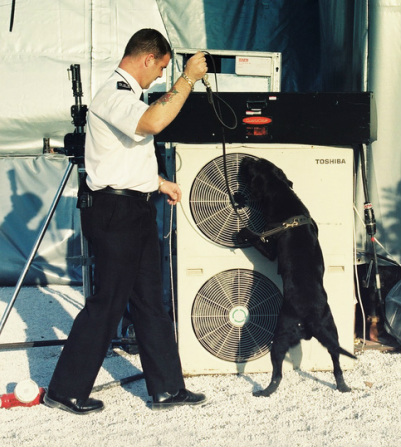
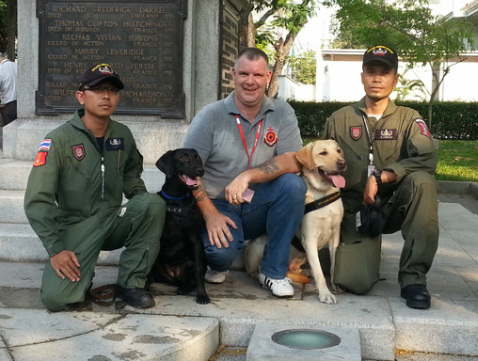
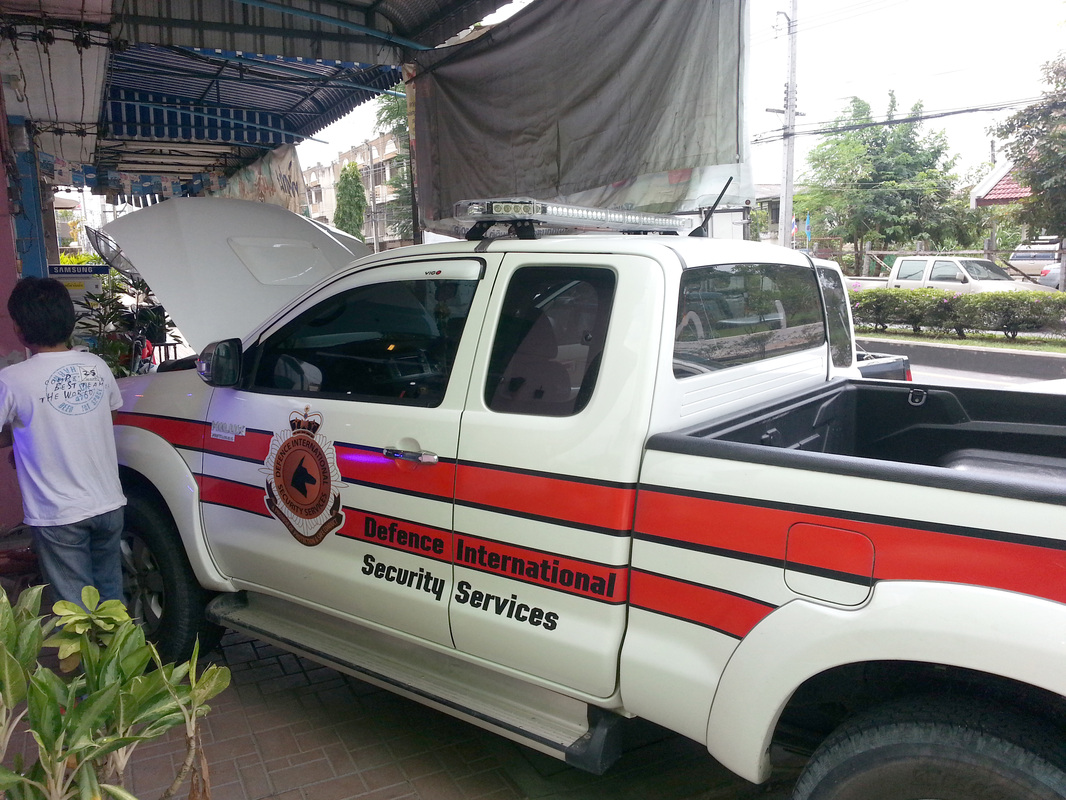
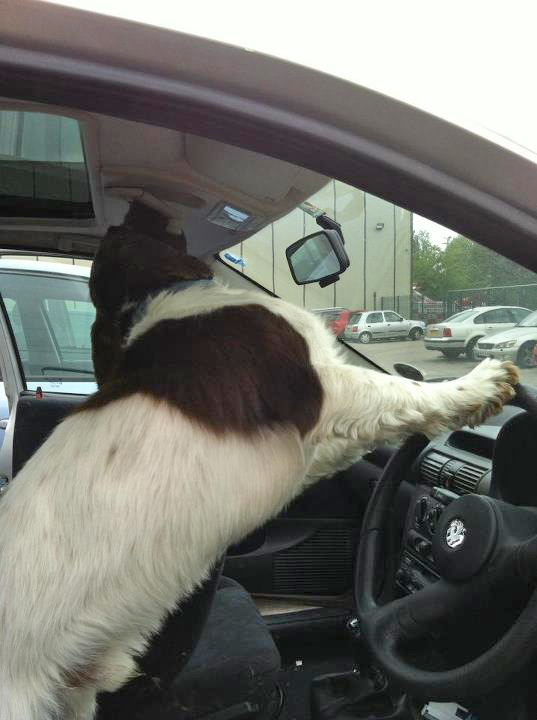
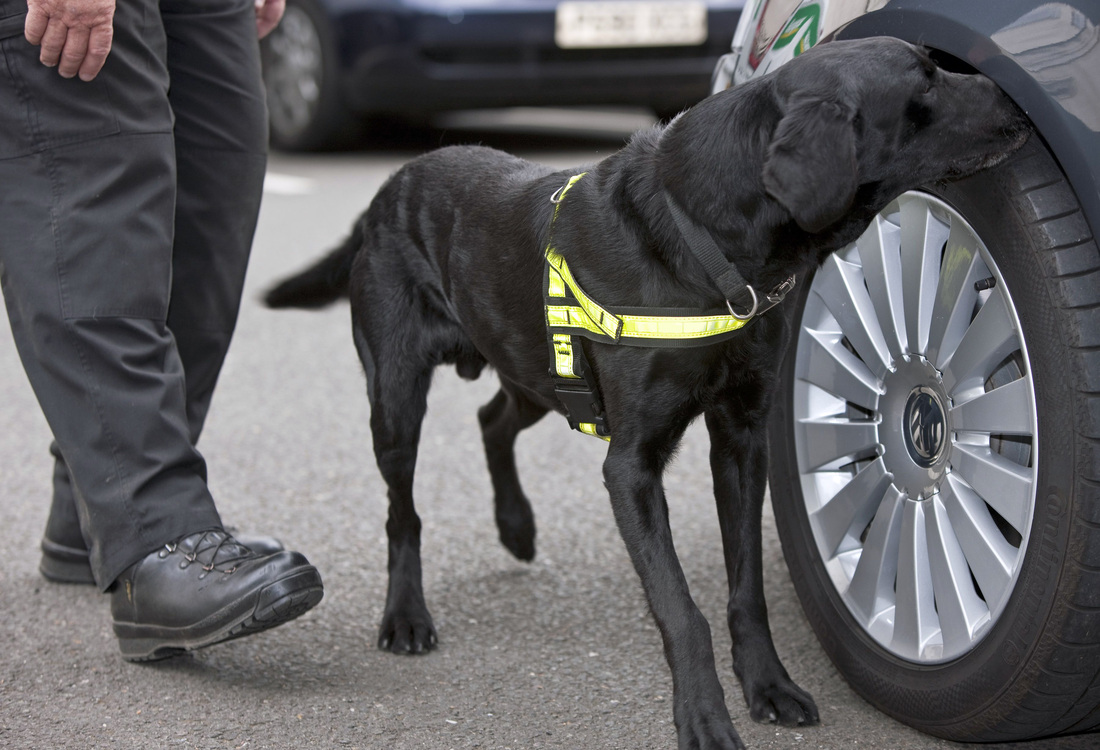
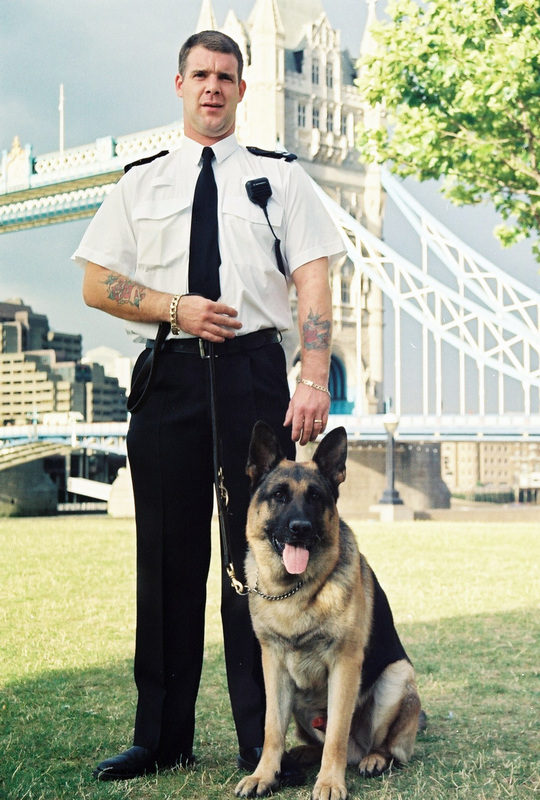
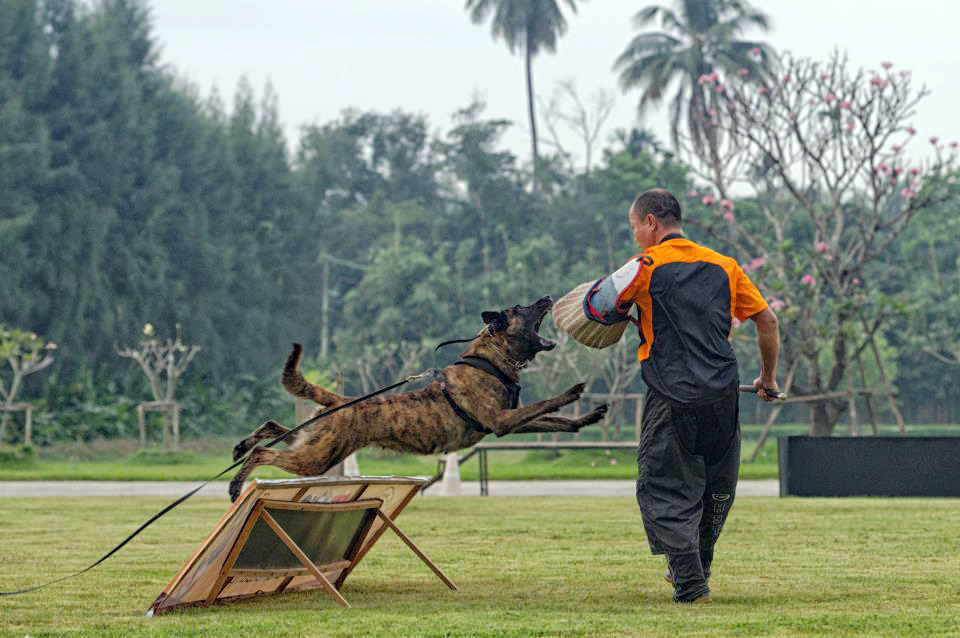
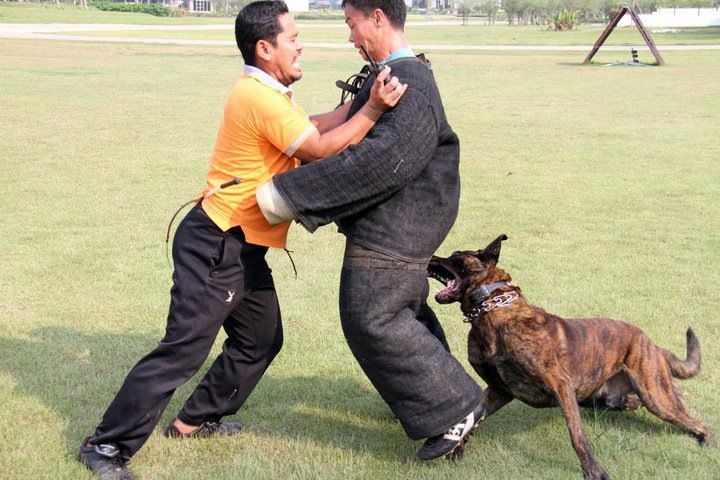
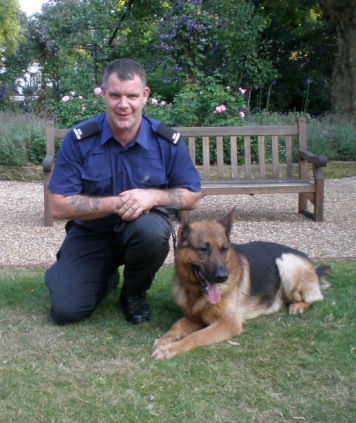
 RSS Feed
RSS Feed
















